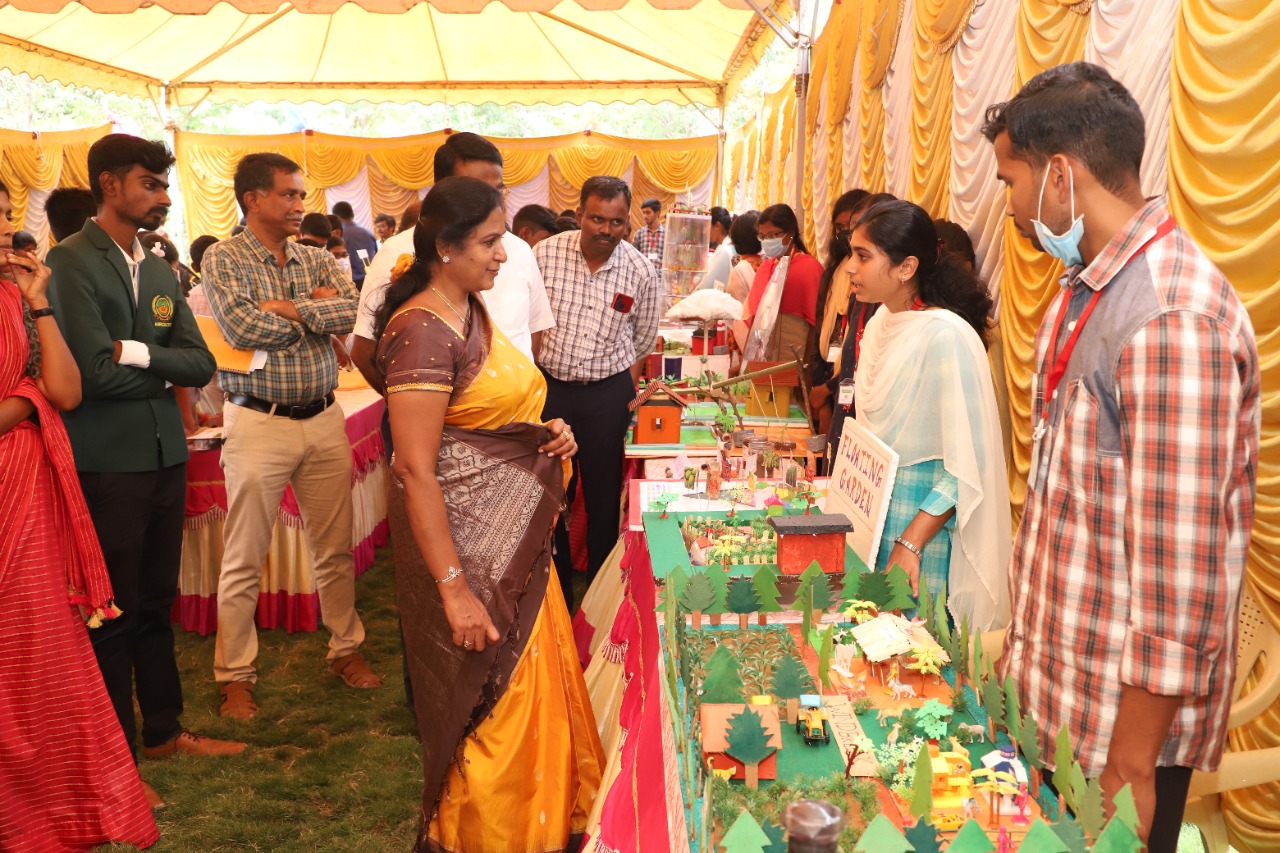The Tamil Nadu Agricultural University (TNAU) had its genesis from establishment of an Agricultural School at Saidapet, Madras, Tamil Nadu, as early as 1868 and it was later relocated at Coimbatore.
Get in touch
- info@tnau.ac.in
- 0422 6611200
- Monday to Friday: 9am to 5pm

M.Sc. (Ag.) in Sericulture
Prelude
Strengthening sericulture research in core areas viz., evaluation of newer mulberry and silkworm genotypes, enhancing cocoon productivity, advanced mulberry techniques for pests and diseases of host plants and silkworm is essential to meet out the ever growing demand of research and farming communities in sericulture. To develop the human resources with a view to meet out the above requirements, it is essential to offer the programme called M.Sc. (Ag.) in Sericulture.
Why this programme?
- To have better understanding of mulberry cultivation techniques, silkworm rearing practices and value addition in sericulture
- To impart techniques associated with sericulture and allied sectors.
- To develop value added products related to mulberry and silkworm

Study Programme
The Masters programme in Sericulture has been designed following the UGC guidelines. The course imparts:
- Sericulture students an enabling environment for better learning
- Develop globally competitive human capacity in sericulture and allied sectors
- Promote research on frontier areas in sericulture for developing high performance and nutrient rich mulberry varieties and silkworm breeds
- Foster international alliances and collaborative initiatives to reach global excellence.
- Promoting entrepreneurial skills of sericulture students.
More details on the list of courses and research work experience to be gained is listed here.
Colleges offering
The master programme in M.Sc. (Ag.) in Sericulture is offered by the Department of Sericulture, Forest College and Research Institute, Mettupalayam – 641 301.

Application and Admission
Interested in taking part in the programme of Sericulture? Find out more about the specific Admission requirements and the application procedures. If you doubt whether admission is possible, feel welcome to apply online. The Admission Committee will check your admissibility.
Future Career
Want to know about the job opportunities after completing the Master’s in Agricultural Extension Education.
To replace table content
Master’s in Agricultural Extension course
Master Courses
After admission, the students undergo a set of courses that help them to understand the basics and applied aspects of Sericulture as per the Choice Based Credit System (CBCS) with a total credit load of 70 credits, of which 30 credits are exclusively earmarked for research work of thesis.
Master’s thesis research
After completing the courses in the first year, the students start their thesis research. Each student is assigned to an experienced faculty, approved by the Dean of School of Post-Graduate Studies, who would guide the student on his/ her choice of research problem related to mulberry and silkworm.
Research internship
The students are exposed to several scientific events like symposia and conferences. Many are encouraged to have internship training at other institutes for a couple of months, either in India or abroad.
Student Experiences

I am Mr. Sabarish, currently working as Asst. Inspector of Sericulture, Office of the Asst. Director of Sericulture, Coonoor. I have completed my Master degree in Sericulture at Forest College and Research Institute, Mettupalayam. During my studies in Master degree, I have learnt technical skills in mulberry cultivation, crop protection and silkworm rearing practices. I undertook my thesis research in development of miniclonal technology in mulberry for rapid multiplication of mulberry saplings. Sericulture has wider opportunities in various sectors like cosmetics, biomedical and food industries. The course also imparts many scientific skills needed to efficiently deliver the duties as extension personnel or scientist in both state and central government.

I am Mr. Naveenkumar, currently working as Asst. Inspector of Sericulture, Office of the Asst. Director of Sericulture, Hosur. I have completed my Master degree in Sericulture at FC & RI, TNAU, Mettupalayam. I studied UG and PG in Sericulture where I learnt required technical knowledge in moriculture, crop improvement, chawki and late-age silkworm rearing, pest & diseases management and seri-waste utilization during my studies at FC&RI. The UG and PG degree programmes in Sericulture offered at FC&RI provide a solid platform starting an entrepreneurship in sericulture. Also, the courses impart relevant essential skills required to effectively deliver the duties as Extension personnel in state sericulture department.

